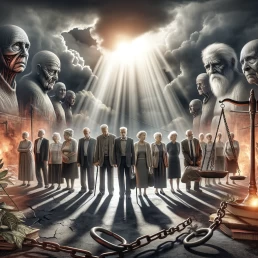Recognizing Elder Abuse as a Grave Concern

Our society often overlooks the significant challenges faced by the elderly, particularly when they become victims of hate crimes. These incidents aren’t just random acts of violence or theft; they’re manifestations of deep-rooted prejudices against aging, making it crucial to shine a light on these injustices.
Unravelling the Impact of Ageism
Ageism, a prevalent societal bias, detrimentally influences how we perceive and address crimes against the elderly. This discrimination not only hinders the support available to victims but also perpetuates their vulnerability, emphasizing the need for a collective effort to challenge and eradicate ageist attitudes.
Confronting the Cruelty of Elder Abuse
The stark reality is that crimes against the elderly often stem from hatred and cruelty, magnified by a lack of cohesive legal responses. The COVID-19 pandemic has further exposed the societal tendency to marginalize the elderly, showcasing the urgent need for a more compassionate and equitable approach.
Overcoming Legal and Social Hurdles
Current frameworks for addressing elder abuse fall short, treating these serious offences as mere social issues. This minimization not only detracts from the severity of the crimes but also complicates the pursuit of justice, calling for a significant overhaul in our legal and social response mechanisms.
Championing Change for Elderly Rights
To effectively combat elder abuse, we must foster a societal shift in how we view aging and the elderly. This involves actively dismantling ageist stereotypes and advocating for robust legal protections, ensuring that respect and dignity are afforded to every older individual.
A Collective Call to Action
The battle against elder abuse transcends legal reforms; it’s a moral call to action for society to reassess and realign its values towards the elderly. By cultivating a culture of respect and protection for older members, we can ensure a safer, more inclusive community for all ages.
